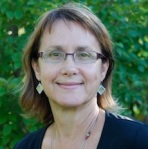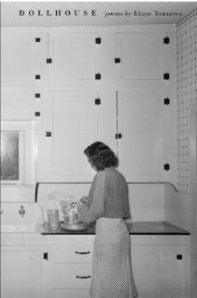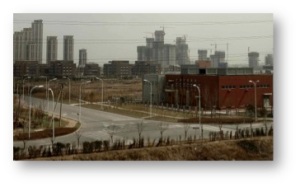Maya Smith Janson (poetry, ’06) talks about where she writes at the Orion Magazine blog:
Any attempt to speak to where I write becomes tangled-up with the when and how and why, the where of it existing as just one element in a formula that involves interiors and exteriors, a sort of psychic littoral zone that has to do with looking inward and outward at the same time. Has to do with being stationary and concentrated and mobile and expansive. Both parts equally important, the whole endeavor influenced by factors seasonal and situational and temperamental.
For example, this past January, in order to meet a commitment to write every day, I began rising before dawn and wrote until sunrise. This meant I had an hour or so before daylight and the stirring of my family signaled the end of the day’s early work. The assignment required that I develop a new routine. First rule: no houselights. I stoked the woodstove and boiled water in the dim light provided by my bicycle headlamp. Then, for reasons mostly romantic, I wrote in the small globe of light afforded by one candle, looking through the French doors out to the snowed-over yard.
Five a.m., but not really dark, the yard bright with snow and illuminated by what I came to think of as dual moons. The real one and a small, domesticated one in the form of a solar-powered paper lantern hung on an ornate iron crook in the dormant Budleja bed. The actual moon waned toward mid-month, then waxed to full by its end. It featured large in my writing. Every poem in some way moonie, moon-soaked. (Did I notice a small, brightening of mood in the lines on the page as the moon returned, fattened, taking up more space within the white pines as it drifted from east to west? I did.) …[Keep Reading]…






